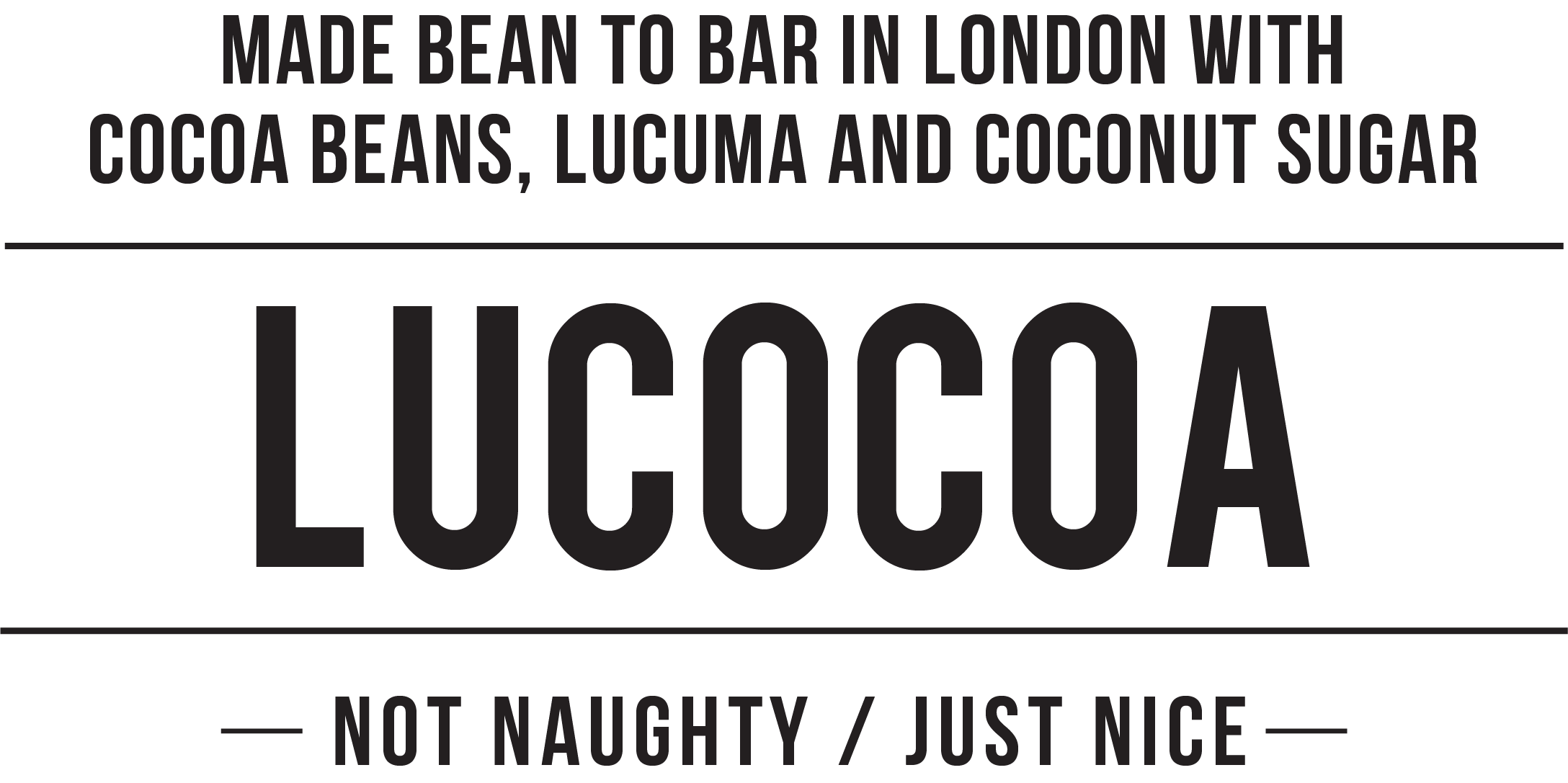Knowledge is powder … cocoa powder
We have been trying to figure out how many chocolate milks were drunk at last week's London Marathon recovery. While we haven’t quite solved the puzzle, we have made a fair few for ourselves using one of the stars of the new Lucocoa pantry; our Ugandan natural cocoa powder (because after all, running the factory sometimes feels like a marathon too!)
Lucocoa’s cocoa powder is different to many others you might find on the supermarket shelves, though. In colour, it is a lighter brown and has an earthy scent, and a creamy, subtly fruity taste. That’s because it is natural rather than the alkalised, or ‘Dutched’ versions you often find in stores. However, what does that even mean? Well, with great powder, comes great responsibility, so let us fill you in!
Natural vs. alkalised – what is the difference?
After cocoa beans have been plucked from their pods, fermented in the tropical sun, roasted until aromatic, hulled, and ground into cocoa liquor, they are often put into a hydraulic press and squeezed until the cocoa butter drains away and a soft, crumbly ‘cake’ is left. This 'cake' is then further ground, revealing the powder that forms the basis of all our favourite bakes, drinks and pastes!
However, since the cocoa powder is naturally a little acidic (around the acidity of black coffee or bananas…yes, bananas are acidic), there is often one more step in the process, that is meant to neutralise the PH. Washing the natural cocoa powder with an alkaline solution, like potassium carbonate, brings the powder to the same PH as water, and in the process makes it visually darker, with a mellower and woodier flavour. Some powders are so heavily washed that they appear black, like those used in Oreo cookies, and have a PH of 8 (the same as eggs and seawater).
Furthermore, these kinds of powders are known, interchangeably, as ‘Dutch-process’, ‘alkalised’ or ‘European-style’ cocoa powders.
Natural or Dutch process – which is the one for me?
The question of whether to opt for natural or Dutched is largely a matter of personal preference, however, there are 3 key differences.
Taste and appearance: Natural cocoa powders are, by definition, less processed than alkalised powders and because of this the natural tasting notes of the bean are more pronounced. Dutched powders, on the other hand, have a deeper and richer but often flatter flavour. Like any fine wine or coffee, we think terroir is an important component of cocoa powders. Thus, the complexity of natural powders is one of the biggest pluses for us!
Behaviour in bakes that require leavening: This point only matters if you are trying to get your bake to rise (think pumpernickel bread and red velvet cakes). In other words, it is a bit of a technical point. However, with GBBO back on our screens, we are sure this general knowledge will be useful soon! Anyway, due to the acidic nature of the natural powders, they react strongly in recipes with baking soda, leading to slightly airier, springier cakes. In addition, bread yeasts also love slightly acidic environments, and the 5.5 PH of natural powders are perfect for them. Dutched powders need a little extra help in this department though. When recipes uses Dutched powders, they also call for baking powder (baking powder = baking soda + acid). As a result, there is less of a reaction, so you will tend to get a fudgier consistency with the alkalised powders, which is great, but bakes can turn a little rubbery if you only use baking soda with a Dutched powder. If the recipe doesn’t call for baking soda, baking powder or yeast, it is down to your personal preference regarding taste, smell, and texture!
Antioxidant content: We should all know by now that the polyphenols, flavonoids and antioxidants in cocoa make it a superfood. As cocoa powder generally doesn’t have the fat or sugar content of even dark chocolate, it is the superfood’s superfood and has been ‘recommended without hesitation’ by cardiovascular experts. (Corti et al. Circulation, 2009) [1]. Despite this, one study has determined that 60% of natural cocoa’s original antioxidants were destroyed with light alkalising, and up to 90% were destroyed by heavy Dutching. (J. Agric. Food Chem. 2006) [2][3] Since the cocoa powder is so rich in antioxidants that even a 60% reduction still leaves it high on the list of antioxidant-rich foods, the jury’s out on whether this is significant. (Crozier SJ, et al Chem Cent J. 2011) [4] Still, if you are health conscious or just using the health benefits as an excuse to settle your conscience, it is a noteworthy piece of information to consider.
Where can I buy Lucocoa’s natural cocoa powder?
Eager to try our new favourite child after reading this? Head over to the Lucocoa shop to browse our Ugandan cocoa powder and other pantry items like Peruvian cocoa butter and Indonesian coconut sugar.
We’re always keen to hear your thoughts and reactions, so let us know what you make with our products via Instagram, Facebook and Twitter or write us an e-mail at contact@lucocoachocolate.com.
[1] https://pubmed.ncbi.nlm.nih.gov/19289648/
[2] https://www.eurekalert.org/news-releases/559051
